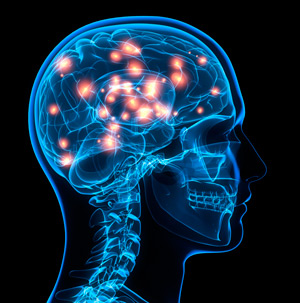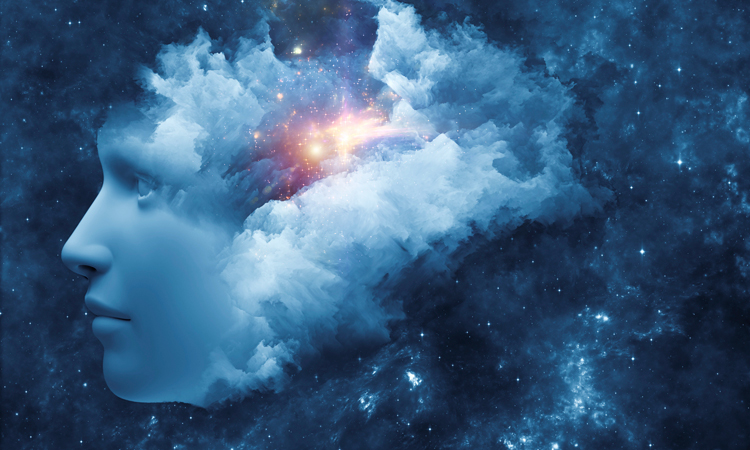Humans have long been fascinated with dreams, where laws of gravity and logic bend and suspend. Over 100 years since Carl Jung introduced his version of dream interpretation, an entire industry now claims to provide answers to your nighttime wanderings. While compelling, dream interpretation doesn’t explain the biological functions of dreams. However, new leaps in neuroscience allow researchers to study the science of dreams, revealing its crucial role in our memory and emotions.
Sleep happens in four stages: sleep onset, where the brain produces theta waves, and you might feel generally spacy or relaxed. Then REM kicks in, where you dream the most. Eventually, you drop into the deepest stages, delta waves.
 In delta sleep, muscle tone is at its lowest, brain activity is “quietest”—fewest neurotransmitters and hormones are produced—and sleepers are most difficult to rouse. This slow-wave sleep stage is crucial for consolidating declarative memory, which helps us remember non-emotional memories, facts, figures, episodes in our lives and what we did that day.
In delta sleep, muscle tone is at its lowest, brain activity is “quietest”—fewest neurotransmitters and hormones are produced—and sleepers are most difficult to rouse. This slow-wave sleep stage is crucial for consolidating declarative memory, which helps us remember non-emotional memories, facts, figures, episodes in our lives and what we did that day.
Dreams only occur in approximately 20% of your total sleeping period. Most dreams occur during REM sleep, thus named because it occurs with “rapid eye movement.” While a quarter of dreaming takes place in deep sleep, you’re unlikely to ever remember these dreams.
REM is a stage of sleep where you’re easily aroused. If a child, animal or alarm clock has ever awakened you from a good dream, you were likely in REM sleep. The average human experiences REM sleep every 90 minutes during total sleep, with the REM cycle extending for longer periods as the night goes on.
 During an REM cycle—though in your dream you might be doing something absurd like riding a bicycle dressed as a fox through your childhood home—your biology is doing something quite important: consolidating operational memory.
During an REM cycle—though in your dream you might be doing something absurd like riding a bicycle dressed as a fox through your childhood home—your biology is doing something quite important: consolidating operational memory.
“Operational memory includes things like how to ride a bicycle or how to perform surgery,” according to Robert Rosenberg, author of Sleep Soundly Every Night, Feel Fantastic Every Day. “If you teach a person something operational, and deprive them of REM sleep, they won’t do that activity as well as those who have had REM sleep.”
REM dream sleep is also important for emotional processing, or a function Rosenberg calls “sleep to forget.” During REM sleep, he says, the brain defuses emotionally laden memories and, through a process known as fear extinction, tones down the amygdala by continuous exposure, which alters the negative memory or emotion. “When we have a traumatic or emotional encounter while awake, a lot of stress hormones—norepinephrine, adrenaline—are released at the same time,” says Rosenberg. “During dreams, we have almost no output of these hormones. We think it’s this milieu of reprocessing the emotions that allows us to deactivate the emotional component during dreaming.”
 Yet, people who suffer conditions such as PTSD or extreme anxiety continue to produce stress hormones even during dream sleep, allowing emotionally-laden memories to linger, and interfering with the sleep process itself. “We think one of the reasons these people don’t dream to forget is that the amygdala fires along with the hippocampus,” says Rosenberg. “The amygdala is the emotional processing center in the brain, and the hippocampus is the memory center. Over time when we do scans of people who have had trauma we find that if the trauma resolves, the amygdala is not as hyper, loses its blood flow and the hippocampus becomes dominant. We retain thought about emotion but lose emotional intensity.”
Yet, people who suffer conditions such as PTSD or extreme anxiety continue to produce stress hormones even during dream sleep, allowing emotionally-laden memories to linger, and interfering with the sleep process itself. “We think one of the reasons these people don’t dream to forget is that the amygdala fires along with the hippocampus,” says Rosenberg. “The amygdala is the emotional processing center in the brain, and the hippocampus is the memory center. Over time when we do scans of people who have had trauma we find that if the trauma resolves, the amygdala is not as hyper, loses its blood flow and the hippocampus becomes dominant. We retain thought about emotion but lose emotional intensity.”
So while science can’t yet explain why you dream you can fly or that you’ve got antlers, it’s clear that dreams, and thus a good night’s sleep, are a crucial part of your health.



